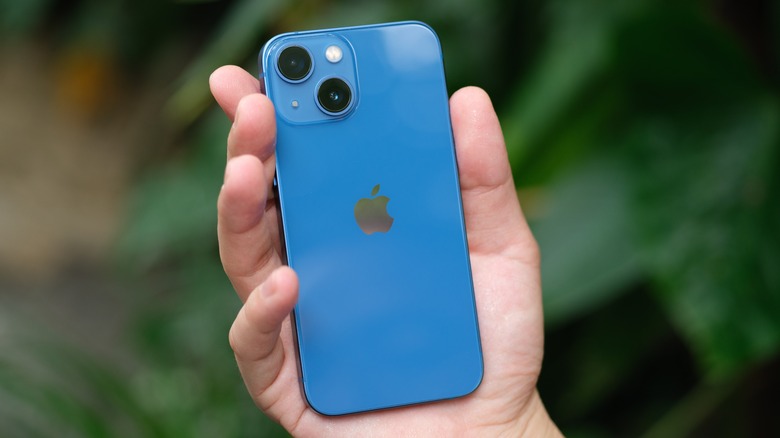Apple's Decision To Cancel The iPhone Mini Vindicated By New Report
In 2020, following calls from several iPhone users, Apple finally launched a small-screened version of the iPhone — the iPhone 12 Mini. The compact iPhone Mini was intended to be a more affordable option compared to the other models in the iPhone lineup. The next year, in 2021, Apple followed that up with the iPhone 13 Mini, which featured a larger battery, among other features.
Unfortunately, after two years, it became increasingly clear that there were very few takers for these small-screened iPhones. While Apple never publicly admitted how poor the sales of the iPhone Mini lineup were, data gathered by the Consumer Intelligence Research Partners (CIRP) revealed that the iPhone 12 Mini accounted for just 5% of all iPhone sales in the U.S. (per MacRumors). The figure was even lower for the iPhone 13 Mini, accounting for less than 3% of the sales of the iPhone 13 lineup.
Given the poor sales numbers, it did not surprise many when Apple canceled the iPhone 14 Mini in 2022. However, what surprised even the most ardent of Apple fans was its decision to replace the iPhone 14 Mini with the iPhone 14 Plus — a larger version of the standard iPhone 14.
Many questioned the rationale behind launching the iPhone 14 Plus. However, since the debut of the iPhone 14 series, it is becoming clear that the iPhone 14 Plus is far more successful than the iPhone Mini lineup ever was, effectively vindicating Apple's decision to focus on the Plus model.
iPhone Plus far more successful than the iPhone Mini series
Initial reports for the iPhone Plus weren't encouraging, with many reports claiming that sales numbers for the device were below expectations. However, a new report by Display Supply Chain Consultants (DSCC) indicates that the shipments for the iPhone 14 Plus easily exceeded the numbers achieved by the iPhone Mini series.
Stats for the iPhone 14 Plus show a massive 59% increase in sales over the iPhone 13 Mini. Data from DSCC also indicates that the vanilla iPhone 14 model is also marginally better than its predecessor, with shipments increasing by 2% year-on-year. Despite these seemingly huge gains, shipment figures for the iPhone 14 Plus pale in comparison to Apple's flagship iPhone models, which are doing exceedingly well each passing year.
Apple's major revenue generators continue to be the iPhone 14 Pro and Pro Max models — with sales increasing by a significant 22% and 23%, respectively — compared to last year. The DSCC data also makes it clear that the iPhone 14 Pro Max is the most popular iPhone model of the lot, accounting for 36% of the shipments.
The iPhone 14 Pro comes in second place with 28% of the shipments, followed by the vanilla iPhone 14, which accounts for 25% of all iPhone shipments. Despite it doing better than the iPhone Mini, the iPhone 14 Plus is the least-selling iPhone 14 model, with it accounting for 11% of the shipments.

